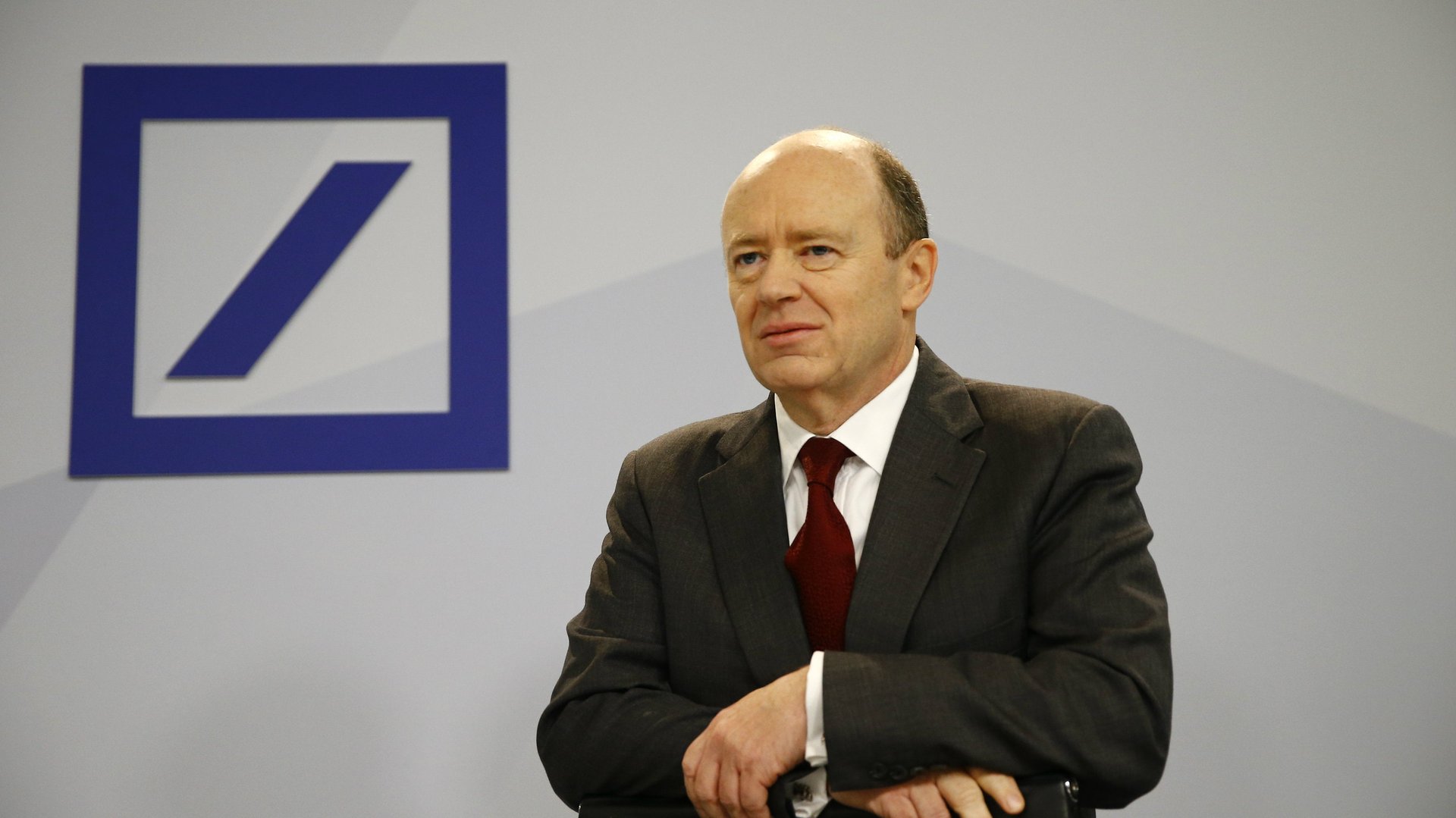Deutsche Bank is asking investors for an $8.5 billion do-over
Less than two years into a five-year plan, Deutsche Bank has had a “change of heart,” according to CEO John Cryan. The beleaguered German banking giant is abandoning the plan in favor of one that sounds suspiciously like the one it had before.


Less than two years into a five-year plan, Deutsche Bank has had a “change of heart,” according to CEO John Cryan. The beleaguered German banking giant is abandoning the plan in favor of one that sounds suspiciously like the one it had before.
Cryan put a brave face on the U-turn, describing it on a conference call as the “brave step of admitting we were going in the wrong direction.” Over the past two years, Deutsche Bank has reported more than €8 billion in losses (pdf), so fair enough.
The bank will reverse its plan to sell Postbank, a big retail lender, and will instead integrate it further into its structure. The bank will recombine its investment banking and corporate banking units after announcing a split of the two in 2015. Despite persistent fears over its thin capital cushion, Cryan repeatedly told shareholders that the bank didn’t need to raise more money. Now, Deutsche Bank is asking investors for €8 billion ($8.5 billion) via a highly dilutive rights issue. Its share price sank by 8% in trading today.
This will be the fourth capital increase for the bank since 2010, bringing the total to almost €30 billion. The bank’s current market cap is only €25 billion, so investors may be wary about how the bank will deploy this latest dollop of funds more productively than in the past.
Bloomberg’s Lionel Laurent makes the fair point that investors aren’t being offered that much in return for supporting the rights issue. Mostly, it’s just the promise of more costly restructuring. Deutsche Bank’s price-to-book ratio is already among the lowest of big banks in its peer group—that is, investors believe the bank’s assets are worth far less than what Deutsche Bank values them on its balance sheet.
On the plus side, the bank has put one of it’s largest legal challenges behind it by settling a $7.2-billion fine with the US Department of Justice for mis-selling mortgage-backed securities. Its share price has also been lifted—along with other banks—by optimism over the US president Donald Trump’s plans for bank deregulation and the prospect of higher interest rates, which help boost lending profits.
Fittingly, Deutsche Bank’s old-is-new strategy will be overseen by Cryan, who is adamant he is staying the course. Cryan was made a CEO in 2015 and oversaw the rollout of the now-defunct “Strategy 2020” plan. Before that, he was on the bank’s supervisory board (and chaired the audit committee), so he was also around when the bank was following its previous strategy. Having played a part in all three revisions of Deutsche Bank’s turnaround plan, he might be best placed to pick the best aspects of each.